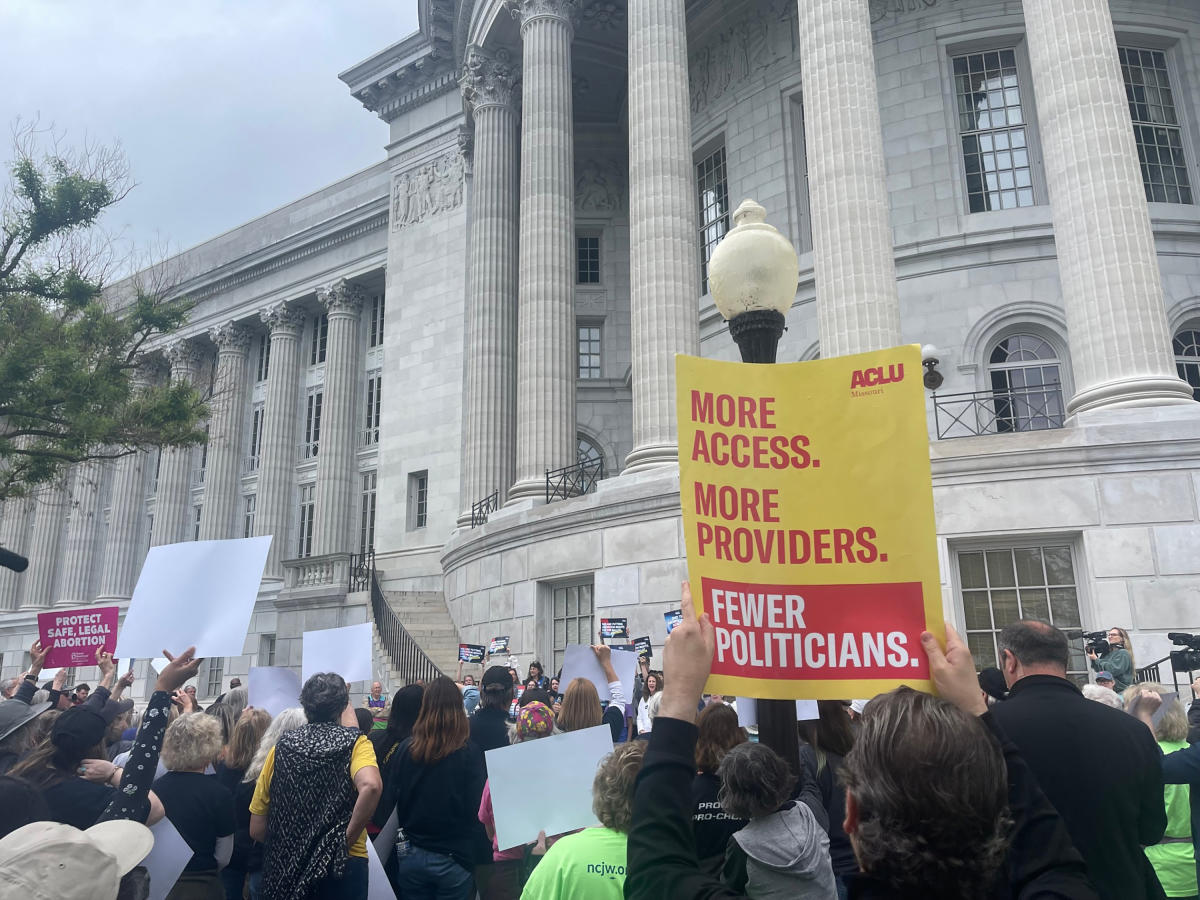Two more states with near-total abortion bans are poised to have citizen-sponsored measures on the ballot this year that would allow voters to reverse those bans by establishing a right to abortion in their state constitutions.
On Friday, a coalition of abortion rights groups in Missouri turned in 380,159 signatures to put the amendment on the ballot, more than double the 172,000 signatures required by law. The Missouri organizers’ announcement followed a petition drive in South Dakota that announced on Wednesday that it, too, had turned in many more signatures than required for a ballot amendment there.
Both groups are hoping to build on the momentum of other states where abortion rights supporters have prevailed in seven out of seven ballot measures in the two years since the U.S. Supreme Court overturned Roe v. Wade, which had established a constitutional right to abortion for nearly five decades.
Sign up for The Morning newsletter from the New York Times
Groups in about 10 other states have secured spots on the ballot for abortion rights measures or are collecting signatures to do so. Those include Arizona and Nevada, swing states where Democrats are hoping that voters who are newly energized around abortion rights will help President Joe Biden win reelection.
South Dakota and Missouri are reliably Republican states. But their bans are among the strictest in the nation, outlawing abortion except to save the life of a pregnant woman.
Missouri, where post-Roe polls show that a majority of voters want abortion to be legal in all or most cases, appears to offer abortion rights groups the bigger chance of success. But both measures face significant hurdles.
Republicans who control the Missouri legislature are pushing another ballot question that would appear before voters in August and make it harder for future ballot amendments to succeed.
That measure would raise the threshold for victory, requiring not only a majority of voters statewide but a majority of voters in five out of the state’s eight congressional districts. Abortion rights supporters fear the requirement would allow a minority in rural areas that tend to oppose abortion rights to vote down the amendment.
Missouri legislators are expected to vote on that measure before their session ends this month. State officials will also have to decide whether the abortion rights measure appears on the primary election ballot in August, when turnout tends to be light, or in the general election in November.
The state’s Republican leaders have attempted to keep the measure from going before voters for more than a year. The secretary of state, Jay Ashcroft, attempted to change the language of the ballot measure in ways that could have inflamed fears that it would lead to dangerous and unregulated abortions; supporters of the measure successfully sued to block him.
The amendment in Missouri is similar to ones passed in Ohio and Michigan. It would establish “the right to make and carry out decisions about all matters relating to reproductive health care,” including abortion. The Legislature could regulate abortion after the point when, “in the good faith judgment” of the treating health care professional, the fetus could survive outside the uterus without “extraordinary medical measures.”
In South Dakota, getting the signatures certified could be a challenge because Republican legislators passed a law in March allowing signers to withdraw their support. Backers of the amendment collected about 55,000 signatures, 20,000 more than needed, but anti-abortion groups are working to collect enough reversals to keep the measure off the ballot.
The amendment effort in South Dakota has been largely driven by one group, Dakotans for Health. Planned Parenthood and other usual allies of abortion rights have declined to support the effort. The groups say that the ballot amendment leaves open the possibility that the legislature could continue to regulate abortion so heavily that the amendment would allow, in the words of the state chapter of the American Civil Liberties Union, “abortion in name only.”
The South Dakota amendment would prohibit the state from regulating “a pregnant woman’s abortion decision and its effectuation” during the first trimester, but would allow regulations on the procedure during the second trimester only in ways that are “reasonably related to the physical health of the pregnant woman.” In the third trimester, the state could regulate and even ban abortion, as long as the ban included exceptions for the “life or health of the pregnant woman.”
South Dakota is one of a handful of states where polls show that less than a majority of voters — 47% in a recent survey — believe that abortion should be legal in all or most cases. (The other states in that same survey were North Dakota, Arkansas, Idaho and Utah.)
c.2024 The New York Times Company
